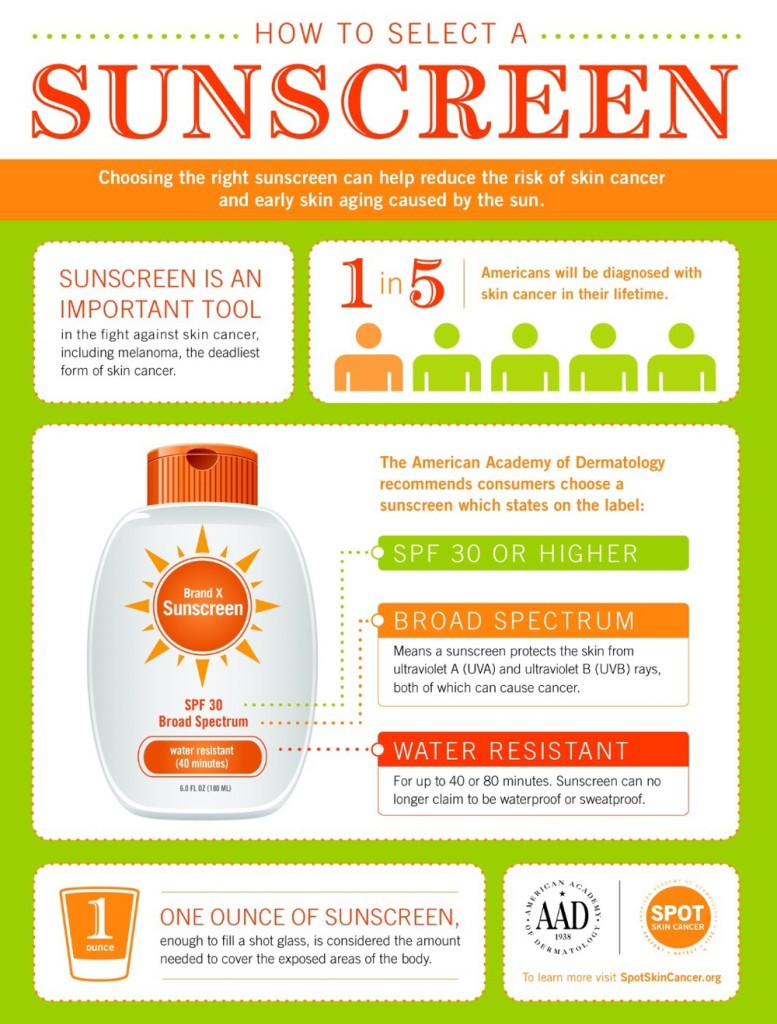The weather is nice and, if you’re like most people, you’ll be spending a good bit of time outdoors now. From pool parties and barbecues to festivals and sightseeing, the number of activities significantly increases — as does your risk for developing skin cancer.
In fact, one out of every five Americans will get skin cancer at some point in their lives, and more people have had skin cancer over the last three decades than all other cancers combined. But there are ways to minimize the damage that occurs every time you expose yourself to the ultraviolet rays of the sun. Read on to find out how
Why is skin cancer so prevalent?
The average adult has about eight pounds or about 22 square feet of skin. To put that in perspective — a standard doorway is 21 square feet, and the average adult’s skin would fill all of that space. As the largest organ of the body, your skin is incredibly important to your health and overall wellbeing.
 Any and all UV radiation that skin is exposed to is harmful. Even minor exposures can still lead to DNA damage in the cells of the epidermis that over time can lead to premature aging and the development of skin cancer. This is why more than 90% of skin cancer is caused by excessive exposure to the sun.
Any and all UV radiation that skin is exposed to is harmful. Even minor exposures can still lead to DNA damage in the cells of the epidermis that over time can lead to premature aging and the development of skin cancer. This is why more than 90% of skin cancer is caused by excessive exposure to the sun.
While anyone can get skin cancer, individuals most susceptible to the disease include those with red or blonde hair, those with light (blue or green) eyes, those who possess naturally lighter skin, and those with a family history of melanoma or other skin cancers. Skin cancer rates are typically slightly higher in men and tend to increase in incidence as patients age and cumulative ultraviolet exposure increases.
But I always apply sunscreen!
While sunscreen does not fully protect skin from the sun’s rays, it is significantly better to use it than not and also extends its healthiness. But even when people think they are protecting their skin with sunscreen, many aren’t.
In fact, most people under apply sunscreens, using ¼ to ½ the amount required for protection and leaving their skin incredibly vulnerable. So be sure to apply sunscreen liberally. It’s better to be safer than sorry.
What kind of sunscreen should I use?
Anyone over the age of six months should use a sunscreen daily. Even those who work inside are exposed to ultraviolet radiation for brief periods throughout the day, especially if they work near windows, which generally filter out UVB but not UVA rays.
 Children under the age of six months should not be exposed to the sun since their skin is highly sensitive to the chemical ingredients in sunscreen as well as to the sun’s rays. Shade and protective clothing are the best ways to protect infants from the sun.
Children under the age of six months should not be exposed to the sun since their skin is highly sensitive to the chemical ingredients in sunscreen as well as to the sun’s rays. Shade and protective clothing are the best ways to protect infants from the sun.
The answer to what kind of sunscreen you should use depends on how much sun exposure you’re anticipating.
A broad-spectrum sunscreen that protects against both UVA and UVB rays with SPF 30 or higher is recommended. For extended periods of sun exposure, be sure to re-apply thoroughly every 2-4 hours, depending on how much you sweat and whether you’ve been in water or not.
What is SPF (Sun Protection Factor) sunscreen?
SPF, or Sun Protection Factor, is a measure of how well a sunscreen will protect skin from UVB (Ultra Violet B) rays, the kind of radiation that causes sunburn, damages skin, and can contribute to skin cancer.
If your skin would normally burn after 10 minutes in the sun, applying an SPF 15 sunscreen would allow you to stay in the sun without burning for approximately 150 minutes (a factor of 15 times longer). This is a rough estimate that depends on skin type, intensity of sunlight and amount of sunscreen used. SPF is actually a measure of protection from amount of UVB exposure and it is not meant to help you determine duration of exposure.
Why not use sunscreen with a really high SPF?
Sunscreens with really high SPFs, such as SPF 75 or SPF 100, do not offer significantly greater protection than SPF 30 and mislead people into thinking they have more protection than they actually do. Additionally, in order to have broad spectrum protection, the UVA protection should be at least 1/3 of the UVB protection. High SPF sunscreens usually offer far greater UVB than UVA protection, thus offering a false sense of full protection.
For more detailed information on choosing the right sunscreen for your skin type, click here or review the graphic below.
